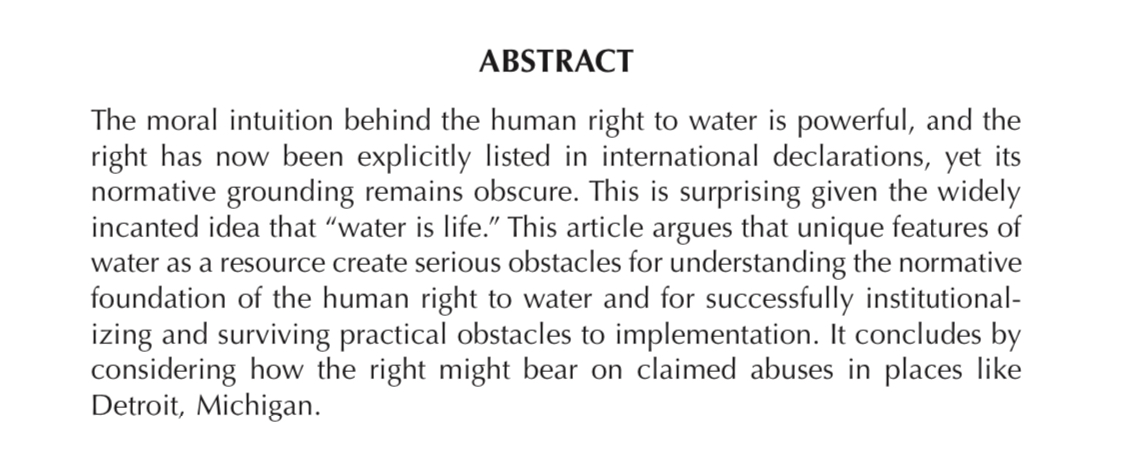Vaguely picked up from twitter that in many places water is used inefficiently due to political compromises and a market system would be better. The biggest case was water use in the US: muncipalities trying to cut back on residential use while agriculture (in deserts!) gets very cheap water.
100 for interesting article i haven't read before, 1k for moving my (weakly held) position
My wife's uncle is a farmer in the desert. Apparently, the reason it's good to farm in the desert is that if it doesn't rain much, you can always irrigate to pick up the slack, but if it rains too much, there's no way to fix that and the excess water can ruin the harvest. If you farm in a desert, you can carefully control how much water the crops get, therefore you can consistently get higher yields.
Water is cheaper to farmers because they buy it in bulk, and it's cheaper to deliver and process the water (e.g. it doesn't need to be chlorinated). So even in a pure market system we should expect farms to use more water and to pay less for it than city residents would pay for their tap water.
Of course, there are market distortions like water subsidies to farmers and municipalities which try too hard to ration and restrict water use in residential areas. The utilities which have a government granted monopoly on water are never going to be as efficient as they should be (generally speaking, they provide water at lower cost than the fair market price), but my guess is that (in the United States, at least) water prices are generally not terribly far from the market ideal.
The big problem in many places not the difference between the fair market price of water and it's actual price, per se, but rather the market distortions which occur when the water is lost rather than sold (https://en.wikipedia.org/wiki/Non-revenue_water). In Nairobi, Kenya, for example, 40%-50% of the water is lost (mostly due to theft and leaky pipes): https://en.wikipedia.org/wiki/Water_supply_and_sanitation_in_Nairobi. The market does pick up some of the slack (e.g. people in the slums buy water from kiosks at a large markup), but if the pipe network were higher quality and everyone were to be connected to it, then the water would be less contaminated, it would be used more efficiently, and overall prices would be lower (in particular, water would be cheaper in the slums than it now is, though it could conceivably be slightly more expensive elsewhere in the city). It's certainly possible that privatizing the water utilities would improve the system (i.e. a private company would have better incentives to maintain the pipes and extend the network), but such privatizations of water utilities (e.g. Argentina, Bolivia, England, Manila) have been highly contentious in the past because of the increases in water prices, since a private utility monopolies are blamed (justly or unjustly) for charging prices which are above the fair market price.
